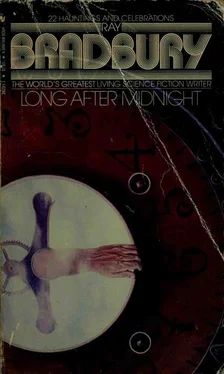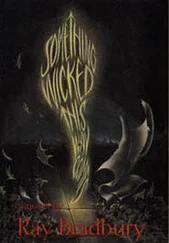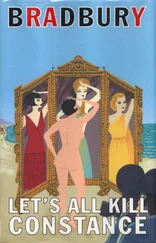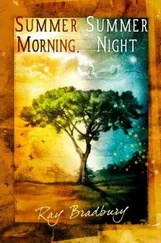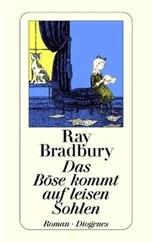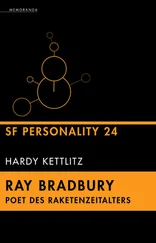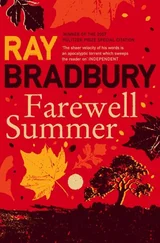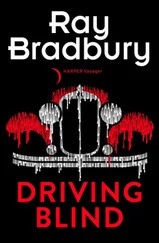Ray Bradbury - Long After Midnight
Здесь есть возможность читать онлайн «Ray Bradbury - Long After Midnight» — ознакомительный отрывок электронной книги совершенно бесплатно, а после прочтения отрывка купить полную версию. В некоторых случаях можно слушать аудио, скачать через торрент в формате fb2 и присутствует краткое содержание. Год выпуска: 1982, ISBN: 1982, Жанр: Классическая проза, на английском языке. Описание произведения, (предисловие) а так же отзывы посетителей доступны на портале библиотеки ЛибКат.
- Название:Long After Midnight
- Автор:
- Жанр:
- Год:1982
- ISBN:978-0-553-22867-0
- Рейтинг книги:5 / 5. Голосов: 1
-
Избранное:Добавить в избранное
- Отзывы:
-
Ваша оценка:
- 100
- 1
- 2
- 3
- 4
- 5
Long After Midnight: краткое содержание, описание и аннотация
Предлагаем к чтению аннотацию, описание, краткое содержание или предисловие (зависит от того, что написал сам автор книги «Long After Midnight»). Если вы не нашли необходимую информацию о книге — напишите в комментариях, мы постараемся отыскать её.
Long After Midnight — читать онлайн ознакомительный отрывок
Ниже представлен текст книги, разбитый по страницам. Система сохранения места последней прочитанной страницы, позволяет с удобством читать онлайн бесплатно книгу «Long After Midnight», без необходимости каждый раз заново искать на чём Вы остановились. Поставьте закладку, и сможете в любой момент перейти на страницу, на которой закончили чтение.
Интервал:
Закладка:
It all comes back to me through the simple expedient of an examined trunk in the attic. This morning I pulled back the brass hasps and lifted the lid, and the immemorial odor of mothballs shrouded the unstrung tennis rackets, the worn sneakers, the^ shattered toys, the rusty roller skates. These implements of play, seen again through older eyes, make it seem only an hour ago that I rushed in from the shady streets, all asweat, the cry of "Ollie, Ollie, Oxen Free!" still excitedly trembling on my lips.
I was a weird and ridiculous boy then with brooding and uncommon ideas; the poison and the fear were only part of me in those years. I began making notes in a lined nickel tablet when I was only twelve. I can feel the stubby pencil in my fingers now, writing in those timeless mornings.
I paused to lick my pencil, thoughtfully. I sat in my upstairs room at the beginning of a clear endless day, blinking at the rose-stamped wallpaper, my feet bare, my hair shorn to a hairbrush stubble, thinking.
"I didn't know I was sick until this week," I wrote. "I've been sick for a long time. Since I was ten. I'm twelve now."
I scrouged up my face, bit my lips hard, focused blurrily on the tablet. "Mom and Dad have made me sick. Teachers at school also gave this—" I hesitated. Then I wrote: "Disease to mel The only ones who don't scare me are the other kids. Isabel Skelton and Willard Bowers and Clarisse Mellin; they aren't very sick yet. But I'm really bad off. ..."
I laid the pencil down. I went to the bathroom mirror to see myself. My mother called me from downstairs to come to breakfast. I pressed close to the mirror, breathing so fast I made a big damp fog on the glass. I saw how my face was—changing.
The bones of it. Even the eyes. The pores of my nose. My ears. My forehead. My hair. All the things that'd been me for such a long time, starting to become something else. ("Douglas, come to breakfast, you'll be late for school!") As I took a quick wash I saw my body floating under me. I was inside it. There was no escape. And the bones of it were doing things, shifting, mixing around!
Then I began singing and whistling loud, so I wouldn't think about it; until Father, rapping on the door, told me to quiet down and come eat.
I sat at the breakfast table. There was a yellow box of cereal and milk, white-cold in a pitcher, and shining spoons and knives, and eggs planked with bacon, Dad reading his paper, Mom moving around the kitchen. I sniffed. I felt my stomach lie down like a whipped dog.
"What's wrong, son?" Dad looked at me casually. "Not hungry?"
"No, sir."
"A boy should be hungry in the morning," said Father.
"You go ahead and eat," said Mother at me. "Go on now. Hurry."
I looked at the eggs. They were poison. I looked at the butter. It was poison. The milk was so white and creamy and poisonous in its pitcher, and the cereal was brown and crisp and tasty in a green dish with pink flowers on it.
Poison, all of them, poison! The thought ran in my head like ants at a picnic. I caught my lip in my teeth.
"Unh?" said Dad, blinking at me. You said?"
"Nothing," I said. "Except I'm not hungry."
I couldn't say I was ill and that food made me ill. I couldn't say that cookies, cakes, cereals and soups and vegetables had done this to me, could I? No, I had to sit, swallowing nothing, my heart beginning to pound.
"Well, drink your milk at least, and go on," said Mother. "Dad, give him money for a good lunch at school. Orange juice, meat, and milk. No candy."
She didn't have to warn me on candy. It was worst of all the poisons. I wouldn't touch it again, ever!
I strapped my books and went to the door.
"Douglas, you didn't kiss me," said Mom.
"Oh," I said, and shuffled to kiss her.
"What's wrong with you?" she asked.
"Nothing," I said. " 'Bye. So long, Dad."
Everybody said good-bye. I walked to school, thinking deep inside, like shouting down a long, cold well.
I ran down through the ravine and swung on a vine, way out; the ground dropped away, I smelled the cool morning air, sweet and high, and I screamed with laughter, and the wind threw away my thoughts. I tossed myself in a flip against the embankment and rolled down as birds whistled at me and a squirrel hopped like brown fuzz blown by the wind up around a tree trunk. Down the path the other kids fell like a small avalanche, yelling. "Ahh—eee—yah!" Pounding their chests, skipping rocks on the water, jumping their hands down to catch at crayfish. The crayfish jetted away in dusty spurts. We all laughed and joked.
A girl passed by on the green wooden bridge above us. Her name was Clarisse Mellin. We all hee-hawed at her, told her to go on, go on, we didn't want her with us, go on, go on! But my voice caught and trailed off, and I watched her going, slowly. I didn't look away.
From way off in the morning we heard the school bell ring.
We scrambled up trails we'd made during many summers over the years. The grass was worn; we knew each snake hole and bump, each tree, every vine, every weed of it. After school we'd made tree huts here, high up over the shining creek, jumped in the water naked, gone on long hikes down the ravine to where it emptied lonely and abandoned into the big blue of Lake Michigan, near the tannery and the asbestos works and the docks.
Now, as we panted up to school, I stopped, afraid again. "You go on ahead," I said.
The last bell tolled. The kids ran. I looked at the school with vines growing on it. I heard the voices inside, making a high, all-the-time noise. I heard little desk bells tinkle and sharp teacher voices reaching out.
Poison, I thought. The teachers, too! They want me sick! They teach you how to be sicker and sicker! And —and how to enjoy being sick!
"Good morning, Douglas."
I heard high-heeled shoes on the cement walk. Miss Adams, the principal, with her pince-nez and wide, pale face and close-cropped dark hair, stood behind me.
"Come along in," she said, holding my shoulder firmly. "You're late. Come along."
She guided me, one two, one two, one two, upstairs, up the stairs to my fate. . . .
Mr. Jordan was a plump man with thinning hair and serious green eyes and a way of rocking on his heels before his charts. Today he had a large illustration of a body with all its skin off. Exposed were green, blue, pink, and yellow veins, capillaries, muscles, tendons, organs, lungs, bones, and fatty tissues.
Mr. Jordon nodded before the chart. "There's a great similarity between cancer and normal cell reproduction. Cancer is simply a normal function gone wild. Overproduction of cellular material—"
I raised my hand. "How does food—I mean—what makes the body grow?"
"A good question, Douglas." He tapped the chart. "Food, taken into the body, is broken down, assimilated, and—"
I listened and I knew what Mr. Jordan was trying to do to me. My childhood was in my mind like a fossil imprint on soft shale rock. Mr. Jordan was trying to polish and smooth it away. Eventually it would be all gone, all my beliefs and imaginings. My mother changed my body with food, Mr. Jordan worked on my mind with words.
So I began to draw pictures on paper, not listening. I hummed little songs, made up a language all my own. The rest of the day I heard nothing. I resisted the attack, I counteracted the poison.
But then after school I passed Mrs. Singer's store and I bought candy. I couldn't help it. And after I ate it I wrote on the back of the wrapper: "This is the last candy I'm going to eat. Even at the Saturday matinee, when Tom Mix comes on the screen with Tony, I won't eat candy again."
I looked at the candy bars stacked like a harvest on the shelves. Orange wrappers with sky-blue words saying "Chocolate." Yellow and violet wrappers with blue words on them. I felt the candy in my body, making my cells grow. Mrs. Singer sold hundreds of candy bars each day. Was she in conspiracy? Did she know what she was doing to children with them? Was she jealous of them being so young? Did she want them to grow old? I wanted to kill herl
Читать дальшеИнтервал:
Закладка:
Похожие книги на «Long After Midnight»
Представляем Вашему вниманию похожие книги на «Long After Midnight» списком для выбора. Мы отобрали схожую по названию и смыслу литературу в надежде предоставить читателям больше вариантов отыскать новые, интересные, ещё непрочитанные произведения.
Обсуждение, отзывы о книге «Long After Midnight» и просто собственные мнения читателей. Оставьте ваши комментарии, напишите, что Вы думаете о произведении, его смысле или главных героях. Укажите что конкретно понравилось, а что нет, и почему Вы так считаете.
